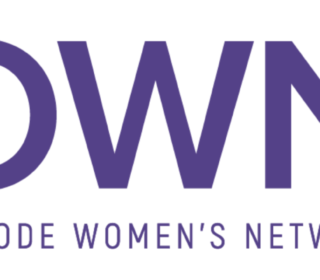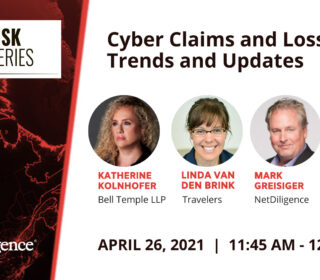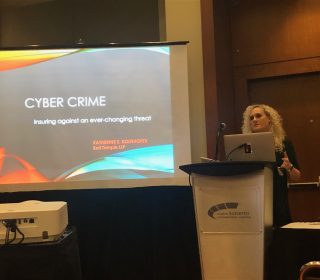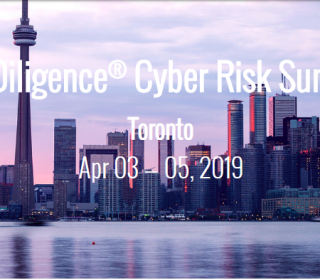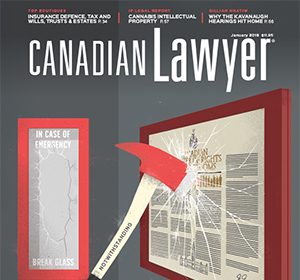The last few months have been unprecedented for all persons in Canada. Governments and businesses have been forced to alter, adapt, and in many cases, cease operations in order to respond to the COVID-19 pandemic. These realities apply to the justice system.
As a result, there are important developments that apply to the insurance industry. What follows is a brief presentation on a few of the important issues facing insurers and litigators. We have taken a practical approach, providing some basic advice on how to navigate insurance law during the COVID-19 pandemic.
SUSPENSION OF THE LIMITATION PERIOD
On March 17, 2020, the Ontario Superior Court of Justice suspended most of its operations in an attempt to help curb the spread of the COVID-19 virus. Originally, the court planned to re-open in June; however, following the announcement on May 4, 2020, we now know that the court will not re-open most operations until July 6, 2020 “at the earliest”.
On March 20, 2020, on the heels of the court’s decision to suspend most operations, the Attorney General of Ontario ordered the suspension of limitation periods and other time periods. The Order is retroactively dated to March 16, 2020. The Order was made pursuant to s. 7.1 of the Emergency Management and Civil Protection Act, which authorizes the Lieutenant Governor to make orders regarding the operation of the law of Ontario when the province is faced with an emergency.
Terms of the Order
The Order has two primary components. First, it suspends “for the duration of the emergency any limitation periods established under any statute, regulation, rule, by-law, or order of the Government of Ontario, retroactive to Monday March 16, 2020”.
Second, it also suspends “for the duration of the emergency the timeline for any procedural step in any proceeding in Ontario as established by any statute, regulation, rule, by-law, or order of the Government of Ontario, subject to the discretion of the court, tribunal, or other decision-maker responsible for the proceeding, retroactive to Monday March 16, 2020.”
What Does this Mean? What is included and what isn’t?
The Basic Limitation Period
Regarding the first component, the Order effectively suspends the basic two-year limitation period stipulated by the Ontario Limitations Act. Normally, a party commencing litigation has a two-year period from the date that the cause of action was discovered to bring an action against another party. The Order stops the clock until the end of the emergency.
Procedural Timelines
The second portion of the Order applies to the time limits provided for specific steps that must be taken in any proceeding in Ontario. This applies to the time periods set out in the Rules of Civil Procedure (“Rules”). As a result, the time periods provided for in the Rules stopped running on March 16, 2020.
For example, the Rules provide that once a party is served with a Statement of Claim, they must deliver a Statement of Defence within twenty (20) days. Therefore, if a party was served with a claim on March 5, 2020, they would normally be required to deliver their defence by March 25, 2020. By operation of the Order, the required twenty-day period stopped running on March 16, 2020. Importantly, once the emergency is formally ended and the time-periods begin to run again, the defendant in our example will only have the remaining nine days they would have had to serve their Statement of Defence.
Time Periods that Continue to Apply
The suspension of procedural time periods likely does not apply to court-ordered timetables, for example a written discovery plan. This is because any court-ordered timetable is not a period of time “prescribed by statute, regulation, rule, by-law, or Order of the Government of Ontario.” With that said, given the closure of the courts, any party looking to enforce a court-ordered timetable would face the practical problem of not being able to actually attend court to speak to a judge.
Additionally, the timelines that parties have to serve expert reports prior to a pre-trial likely still stand. From a practical perspective, if you can’t get expert reports completed (i.e. if doctors are unable to complete them due to distancing / lack of time) then it may be pertinent to consider adjourning the pre-trial.
The Toronto court has implemented a simple and practical solution; pre-trials are now proceeding via Zoom video and memorandums are to be emailed directly to the trial coordinator (memorandums are also limited to ten pages, no tabs and only one page summaries of any material expert reports).
Practical Advice for Insurers Dealing with Limitation Periods/Procedural Timelines During COVID-19
First and foremost, it is pertinent that insureds suspend all document destruction straight away, as the normal limitations time periods are suspended, and may remain suspended for the foreseeable future. Any premature document destruction during this time period may hinder an insureds’ ability to mount an effective defence at a later date; while also exposing themselves to a potential spoliation claim.
Second, although there are time periods that are suspended, it is important to remain proactive. Taking all necessary steps to satisfy limitation deadlines while the Order is in effect will ensure that nothing is missed (more on that below).
Third, it is integral that all insurers and lawyers keep track of limitation period dates during the suspended time period. Calculate the time remaining to complete requisite steps as of March 16, 2020. Once the pandemic has ceased and the time begins to run, immediately revisit those numbers to ensure that nothing is missed.
LIMITATION PERIODS ASIDE, HOW CAN WE KEEP THINGS MOVING DURING COVID-19?
Clearly, the government has hit the pause button on many aspects of traditional litigation. However, there are a number of steps that a litigator / insurer can, and should, take to protect their own interests and the interests of their insureds.
(a) Continue to gather evidence as quickly as possible
It is always pertinent to gather evidence as quickly as possible following a loss. Consider a trip and fall claim commenced against a grocery store during COVID-19. The pandemic has led to lost jobs in almost all industries. An important witness who is laid-off may find new work elsewhere. If their evidence is not gathered now it may be difficult to find them and obtain it at a later point.
(b) Embrace Technology in a Time of Social Distancing – It’s the “New Normal”
In terms of evidence gathering and assessing files, there are many ways for documents to be exchanged between insureds, claims adjusters and legal counsel. There are a number of different platforms that can be used. Here, precautions must be taken to select a platform with proper cyber-security protocols. The issue of security is enhanced when exchanging sensitive documents.
Video conferencing! Although witness statements can usually be taken by phone, and recorded if the requisite consents are obtained, video conferencing and screen share applications can be utilized to review and discuss relevant documents. Further, witnesses who are required to sign witness statements can do so while video conferencing, and can return original copies / scanned copies via e-mail or regular mail.
(c) Continue to Complete Steps in Litigation that Can be Completed
Statements of claim can now be issued by the courts electronically. If, following any discoverability investigation, it is deemed appropriate to commence an action then a party is responsible to do so. Taking initiative now will ensure that timelines are not missed later. Of course, there is the practical difficulty of serving someone personally in times of social distancing – they may not be at work, they may not be responsive at home.
On the other end of the other side of the bar, defences can also be filed electronically. Insurers and litigators should be sure to continue to be diligent and meet procedural timelines as if there were no time freeze.
Keeping with the theme of technology, mediations, arbitrations, and examinations for discovery are now taking place through the use of video conferencing platforms. A point of caution here, every claim is different. A claim requiring the discussion and examination of large detailed documents with a party may not be well suited to a video discovery. It is important for all parties to assess each claim differently.
Mediation remains an important step in litigation that is easily facilitated through the use of technology. During the pandemic all insurers and counsel should review their files to determine those that are ripe for settlement. In a time where many things are on pause, insurers, litigators and litigants have a chance to step back and fully assess the merits of their files.
Adopting a fair approach and pushing settlement, where appropriate, may prove beneficial for not only insurers and insureds, but for plaintiffs as well. Presenting ones oral submissions via video at mediation will continue to give litigators the chance to deliver their respective positions in an effective manner, pushing for settlement where appropriate or drawing a line where it is not. Moreover, mediators will still be able to effectively facilitate discussion. For example, parties can be placed on ‘mute’ to ensure that they listen to the other side. Technology will ensure that the mediator maintains control.
Keeping an eye towards the future is also important. The Chief Justice of the Ontario Superior Court has acknowledged that the justice system has been forced to finally modernize itself. Beyond mediations, discoveries and the like it is likely that we will see motions, applications, and other hearings traditionally heard in person move to some form of video conferencing. Consider a trial post-COVID with a witness to be cross-examined that has been complaining of flu-like symptoms. It is likely that the witness’ evidence will be heard via tele / video conference.
On this note, the recent decision of Arconti v. Smith, 2020 ONSC 2782 is instructive. The pertinent facts for our purposes are as follows:
The plaintiffs were found to have committed securities fraud. They decided to then sue their lawyer and his partner, alleging negligence. Certain claims were dismissed under Rule 21 on January 27, 2020. However, a “mini-trial” was required to determine if a summary judgment order was appropriate for the remaining allegations. Further examination for discovery of the defendants was scheduled for May 6, 2020, prior to the May 27, 2020 trial date. Of course, the global pandemic occurred, requiring the postponement of trial.
On May 1, 2020 a case conference was held to discuss future steps. At that time, counsel for the plaintiffs indicated that his clients did not wish to proceed with examinations for discovery remotely, vehemently objecting to discovery by way of video conference. Plaintiff counsel cited numerous reasons, including concerns around assessing credibility. Although Justice Myers recognized the plaintiffs concerns as reasonable, he ordered the plaintiffs to conduct examination of the defendant virtually on May 6, 2020, or forgo their opportunity to conduct the discovery at all before the “mini-trial”.
In Justice Myers opinion, COVID-19 has changed the way the justice system will operate moving forward. His Honour was quite direct in his thoughts, as he stated in his decision:
It’s 2020. We no longer record evidence using quill and ink. We do not even teach children to use cursive writing in all schools anymore. We now have the technological ability to communicate remotely effectively. Using this technology is more efficient and far less costly than personal attendance. We should not be going back.
This decision sheds light on how important it is for counsel to become comfortable with advocating through the use of technology now, in order to prepare themselves for what inevitably lies ahead. As for now, insurers, litigators, and insureds should operate under the assumption that discoveries, mediations and litigation generally will not be put on pause. It’s 2020!
(d) Maintain a Positive Lawyer-Client/ Client-Lawyer Relationship
Lastly, don’t let social distancing and remote work takeaway from the traditional lawyer-client relationship. Litigators and insurers should continue to maintain an open line of communication and dialogue regarding all files. Regular updates and assessments from counsel are a pillar of the insurance industry. A healthy lawyer-client relationship should not be displaced by COVID-19.
CONCLUSION
The COVID-19 virus has had an unprecedented effect on the justice system. Changes are being made at a rapid pace to reflect the nature and development of the pandemic. It is important for insurers and all counsel to maintain a pro-active approach, as opposed to a one that is re-active. Most importantly, embrace change and remain positive!
Kendall Cumming and Sean Frankland
Bell Temple LLP



























